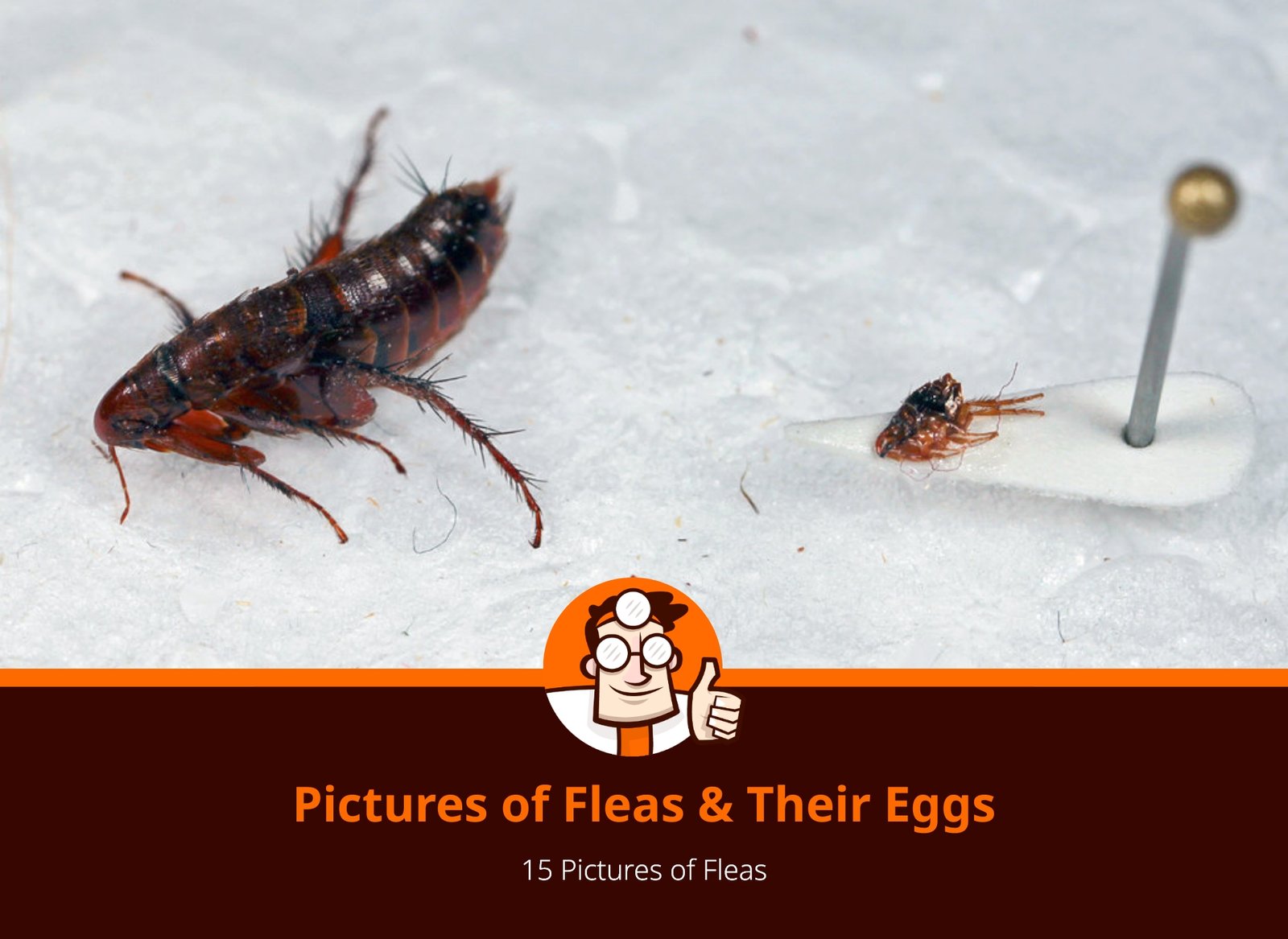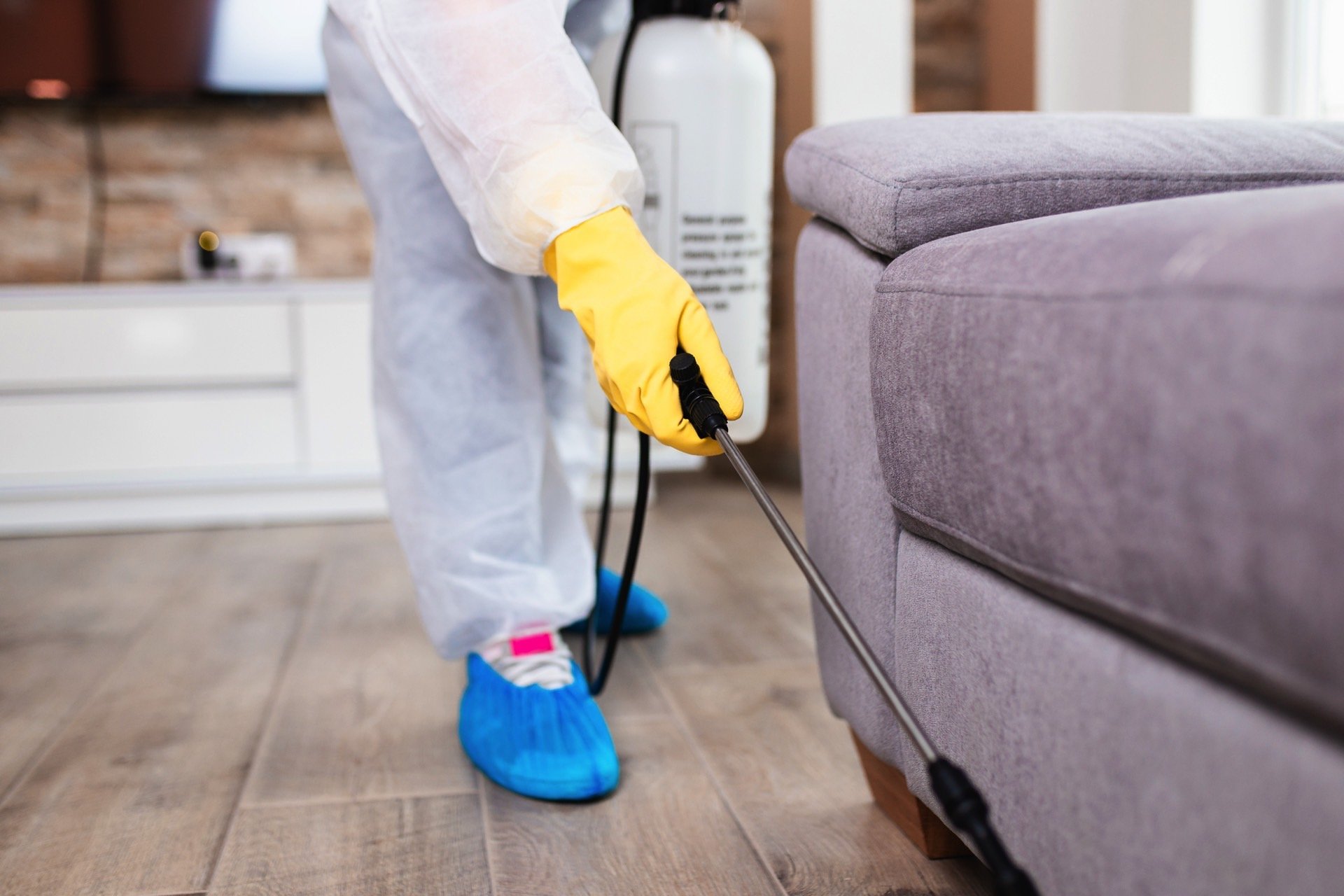Fleas are not just annoying and tedious to get rid of, they can also be a serious health hazard. These parasites carry and spread diseases such as typhus, trench fever, and bubonic plague, which may sound too excessive but are as serious as they can be. They can even transmit the bacteria that causes Rocky Mountain spotted fever – fatal yet rare disease which is very hard to deal with and survive from. While many people think of fleas as pets, it is important to understand that they’re actually pests in their own right.
In this article we’ll give you a quick guide on how to get ride of them and plan the whole process of extermination of fleas. We’ll take a look at what types of fleas there are, and then we’ll go into detail about how to keep them from biting you or your pet.
What Are Fleas?
Fleas are insects that feed off the blood of mammals (including humans). There are two main species of fleas that affect dogs and cats. The first is the cat flea, which feeds off its host by burrowing under the skin and sucking out blood. This species of flea usually lives for around three weeks but will live longer if conditions are favorable.
The second species is the dog flea. It takes up residence in the ears, nose, eyes, and mouth of the animal. The adult dog flea can live for several months with no food or water. When it does find food, it typically prefers warm-blooded animals like dogs and cats, but it can also bite us humans, too.

How Do Fleas Bite Us?
The most common way fleas bite us is when they crawl onto our clothes and then jump onto our bare skin. The fleas may have already been living on our clothing when they climb onto our body, so they don’t need to bite to start feeding. In addition, the fleas are more likely to move toward an area where they can find blood because the blood will attract them. If you scratch yourself, fleas can easily travel through the open wound to the bloodstream.
How Can I Prevent Fleas From Biting Me?
There are several ways you can prevent fleas from biting you while you sleep. First, try using a bedbug trap. Bed bug traps work by attracting the insect to the bedding, where they’re killed by heat or chemicals. You can buy these traps online, or you can make your own. Simply place a piece of gauze soaked in ammonia inside a plastic bag and tie the top together. Place the trap beside your bed, and every time you wake up during the night, check the trap for signs of activity. If you see any bugs, put the trap back in place and let it continue to act as bait until all the bugs are dead.
Second, use flea dips. These products contain a chemical that kills fleas on contact. Some brands also contain a pesticide called permethrin, which works against other pests, including ticks and mosquitoes. You can buy these products at local drugstores, pet stores, and even some supermarkets. Just follow the instructions on the label!
Third, vacuum your home regularly. Don’t skip vacuuming just because you think you’ve removed all the fleas from your house. Fleas hide in places like cracks in floors, behind baseboards, under carpets and furniture, and beneath wallpaper. Vacuum thoroughly, and make sure to vacuum all areas that are difficult to reach.
Fourth, wash your sheets and blankets often. Because fleas prefer warm-blooded hosts, the colder your room gets, the less likely fleas are to survive. In fact, cold temperatures can kill fleas within 24 hours. So whenever possible, try to keep your bedroom cool. And always remember to wash sheets, pillows, and towels after each use.
Fifth, avoid scratching your skin, especially while you’re sleeping. Itchy skin can cause you to itch even more, which makes it easier for fleas to find a host. The best thing to do is to treat itching with over-the-counter antihistamines.
Sixth, wear light colored clothing. The fleas can’t stand light colors, so anything made of dark material is harder for them to hide in. Fleas prefer darker clothing because they can better camouflage themselves in those colors.
Finally, check for fleas in the outdoors. Fleas love damp areas, so watch your yard carefully for signs of infestation. Check your dog’s paws for fleas, since they can enter through cuts and scrapes. Also, check your birdcages and kennels for fleas.
If you suspect you have fleas in your home, call a professional pest control company immediately. They can spray your entire property with pesticides, and they can perform other treatments, such as cleaning drains, removing carpeting, and destroying flea eggs.

Flea Prevention Tips for Pets
Your pet can suffer from fleas just like humans. Although you might not expect it, given how much attention pets receive but fleas thrive well in the homes and body of pets, which is covered with thick fur under which the fleas hide. Your pet will usually pick up fleas outside, but you can help reduce the risk of fleas by keeping your pet clean and grooming him frequently. Here are some tips to help you keep fleas away from your pet.
First, bathe your pet regularly. Bathing removes excess dirt and debris, which helps to keep fleas off your pet. Also, washing your pet’s coat regularly keeps fleas from hiding underneath his fur. Be careful not to shampoo your pet too hard, though. Doing so could damage his hair and lead to bald spots.
Second, keep your pet’s environment free of clutter. Keep your pet’s cage uncluttered — he won’t feel comfortable if he has nowhere to escape or hide. Clean the litter box daily, and remove any feces promptly.
Third, wash your pet’s bedding regularly. Make sure you dry your pet’s bedding thoroughly before putting it back in the cage. Use only untreated, unscented materials to line your pet’s cage.
Fourth, vaccinate your pet against fleas. Vaccines protect your pet against certain types of fleas, helping to keep your pet and other members of your family safe from disease. Make sure to consult your veterinarian before giving your pet a vaccination, however, to ensure that it’s safe for your pet.
Lastly, keep your pet’s home clean and fresh. Remove any clutter in your pet’s home, and vacuum regularly to keep the space free of dust and dirt. Wash your hands after touching your pet, and take care not to leave your pet unattended when he sleeps or plays. Fleas hate moisture, so making sure your pet doesn’t have access to standing water can keep your pet safer from fleas.
It’s easy to forget about fleas when you’re busy taking care of your pet. However, fleas can wreak havoc in your home, and they’re very dangerous for both you and your pet. Keep your pet protected from fleas by following these steps, and you and your family should never worry again. Find your respite from such fleas at https://www.pest-control.bg/services/pruskane-protiv-bulhi/




